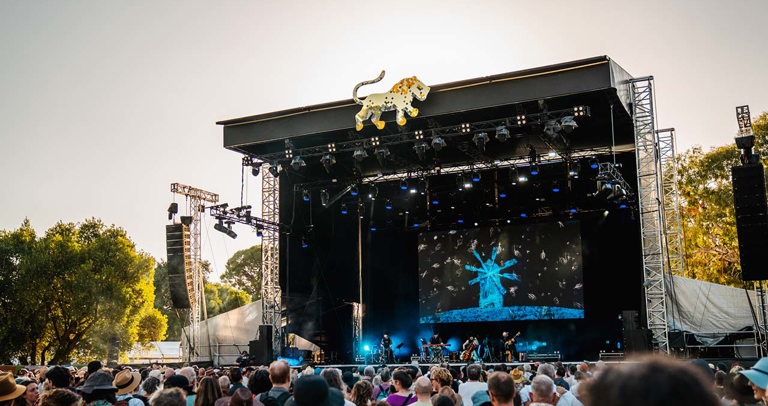“...the greatest treasure this festival offers us – the chance to listen, learn, and dance to a beat we've never heard before.”
WOMADelaide 2024 saw 72 groups from 40+ countries and the site undergoing its most significant redesign since the festival’s establishment. This made available more green space and shaded areas, along with the stunning innovation of the 160-metre-long, cultural retail hub, the WoMarkets, together with revised staging locations and clearway access routes and the new ‘performance studio established in the Adelaide Botanic High School – which hosted extraordinary nightly dance performances by Maqamat – ready for the next five years of welcoming the world to Adelaide.
While heatwave conditions encouraged crowds to arrive later in the day, attendances over the four days approached 98,000 – with more four-day passes purchased than ever before, and an increase in ticket-buyers taking up the pay-as-you-go service.
Festival artists brought messages of hope, peace and unity, stages saw reggae royalty Ziggy Marley finally arrive four years after his Covid delayed appearance in 2020, the voice of the Tunisian revolution Emel Mathlouthi, Pakistani singer, composer and producer Arooj Aftab, Brazilian Tropicália pioneer and politician Gilberto Gil, and Afrobeat sensation and activist Seun Kuti & Egypt 80.
Other highlights at this year’s event included the extraordinary performance installation MULJIL, the joyous Celebration Parade from Handspring & Slingsby theatre captivating audiences around the park. With the festival opening on International Women’s Day – performances by Grammy winning singer-songwriter Corinne Bailey Rae, Angolan-Portuguese singer Pongo and Ukrainian ‘ethno chaos’ quartet DakhaBrakha.
Festival favourite Sampa the Great made surprise appearances for both ‘Zamrock’ band WITCH and one of Africa’s best-known artists Angélique Kidjo returned to the Foundation Stage; ARIA award-winner, Jen Cloher joined by Māori cultural performance group T’HONI to perform the Kapa Haka; and rapturous crowds were captivated by Senegalese superstar Baaba Maal, British jazz wunderkind Yussef Dayes, and Swedish folk hero José González.
“Our only final thought was ‘why did we wait so long to go?”

